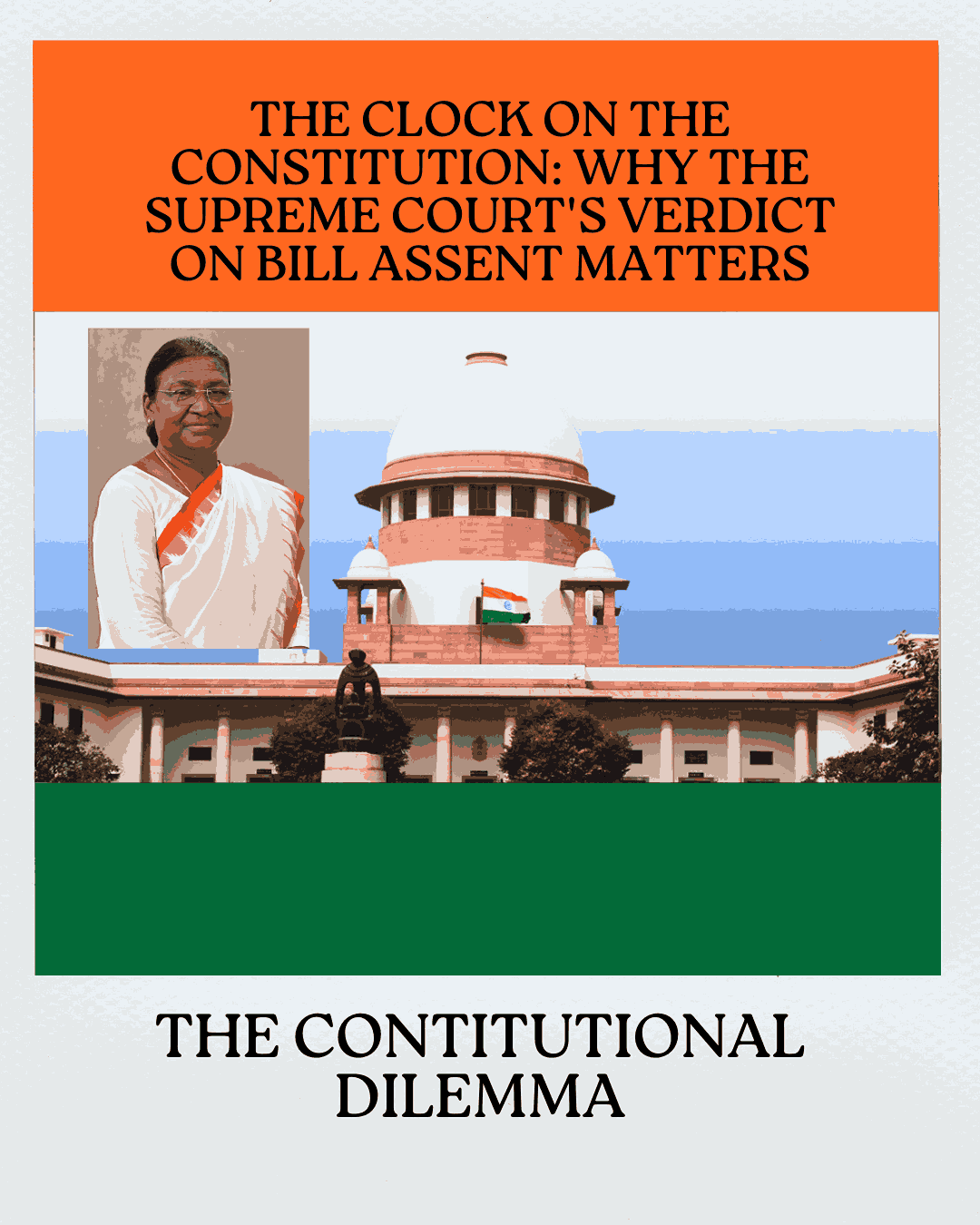The Clock on the Constitution: Why the Supreme Court's Verdict on Bill Assent Matters
In the intricate dance of Indian democracy, a significant question has been placed before the Supreme Court: can a timeline be imposed on the President and state Governors to give their assent to legislative bills? This question, posed by the President herself in a rare "Presidential Reference," has sparked a crucial debate that goes to the very heart of the country's constitutional framework. Article 143 (1) of the constitution empowers the president to seek teh SC's Opinion on questions of law or fact which are of the public importance.
The issue stems from a specific case involving the Tamil Nadu government and its Governor. For over 3 years, several bills passed by the state legislature remained in limbo, with the Governor neither approving them nor returning them. This indefinite delay—often referred to as a "pocket veto"—led the state government to approach the Supreme Court. The court, in its verdict, deemed the Governor's inaction "illegal and arbitrary" and, for the first time, prescribed a timeline for the exercise of this constitutional power. This groundbreaking decision, which used the court's inherent power to "do complete justice," set a precedent that a government cannot be indefinitely thwarted by a constitutional functionary under Article 142.
The President's reference to the Supreme Court under Article 143 of the Constitution seeks clarity on this matter. The central government, arguing against a judicial timeline, contends that Articles 200 and 201 of the Constitution, which govern the assent process, were deliberately left without a specific time limit by the framers of the Constitution. They argue that imposing a timeline would amount to a judicial amendment, violating the doctrine of separation of powers. They also point out that in the vast majority of cases, bills are assented to promptly, and a few isolated incidents should not lead to a sweeping judicial overreach. The Centre's argument frames the Governor and the President not as mere "postmen" but as vital constitutional sentinels who need discretionary power to review and, if necessary, halt potentially unconstitutional legislation.
On the other side, opposition-ruled states, which have often been at the receiving end of these delays, argue that the will of the people, as expressed through their elected legislatures, cannot be held hostage by the whims of a Governor. They assert that the phrase "as soon as possible" in the Constitution implies a sense of urgency and that indefinite delays undermine the very essence of a parliamentary democracy. They argue that judicial review of a Governor's inaction is essential to ensure accountability and prevent the democratic process from being stalled for political reasons.
The Supreme Court, in its ongoing hearing, has acknowledged the delicate balance it must strike. While affirming its belief in the separation of powers, the court has also questioned whether it can remain a "mute spectator" if one wing of democracy fails to perform its duty. The verdict in this case will not just be a legal opinion; it will be a defining moment for the relationship between the judiciary, the executive, and the states, shaping the future of India's federal structure.

